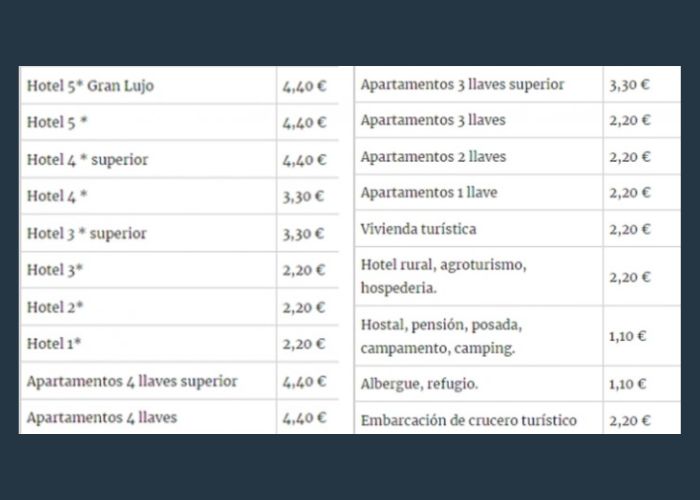PALMA – The ecotax is once again at the centre of the political debate in the Balearic Islands. For Podemos, the introduction of this tax is one of the most important requirements regarding a new coalition pact agreement.
This is a pact between the current government parties PSIB-PSOE, Més and Podemos. The latter also wants luxury ships that anchor in the island community to pay the ecotax. Furthermore, the party is demanding from current government members this ecotax has a value based on the cost per night. For example, the higher the value, the higher the rate. At the moment, the price only varies depending on the type of establishment and is a fixed amount per category.
“Our proposal is a rethinking of the sustainable tourist tax. It is a green tax tool that should serve to improve our sustainability and transform the economy of our islands. As is the case in Amsterdam or Berlin, it should be applied as a percentage of the establishment cost. In this way, luxury tourism, which consumes the most resources, will have to pay a higher percentage,” affirmed the current Island Councilor for Environment, Aurora Ribot.
The newspaper El Periódico de Ibiza reports that, even though the political formation defends these measures, Podemos is open to negotiations. This way, the party wants to specify measures that are “pioneering in the field of environmental protection and social justice. Just as tourism is pioneering in the Balearic Islands”.
The ecotax in the Balearic Islands
The regulations stipulate that all tourists who stay overnight in the Balearic Islands must pay an ‘ecotax’ of between €2 and €4, depending on the category of hotel in which they stay. This year, €138 million has already been raised based on the following prices:

Related post: Tourism sector takes action against tourist tax in Valencia region
What will the money collected be spent on?
However, of the €139 million that will be spent next year from the collected tax, none will go to improving tourist areas. It is the first time that income from the ecotax has not been earmarked for tourism policy.
50% goes to projects related to the environment
A few weeks ago it was decided where the money will go. The government was in agreement on this. In contrast to previous years, almost 50% of the total money is earmarked for projects related to the environment. For example, €20 million has been earmarked for improving water networks. In addition, €6 million has been reserved for investments in the modernisation and adaptation to climate change farms and support for several municipalities to improve the water system.
Other expenditure items
€1.1 million will be spent on the purchase of Alaró Castle and another €3.1 million on the expansion of public land in areas of environmental importance. Another €1.3 million will be earmarked for “experimental adaptation to climate change for the inhabitants of the Balearic Islands”.
No money from the tourist tax to tourism
These items are all part of the plan to use the tax to make environmental improvements. However, the investments for the coming year do not mention the second main purpose of the tax: tourism.
One of the original purposes of the tax was to improve tourist resorts, but in 2023 this part of the tax has been dropped. €28 million will be spent on housing construction and €15 million will be used for the purchase of apartments of less than €270,000 and the remaining €13 million for the promotion of 53 social rental homes.
Initially, housing was not included in the projects that could be financed with the ecotax, but the government approved an amendment to the law in the last legislature to allow the construction of flats with the ecotax. This is based on the premise that the shortage of housing is one of the negative consequences of tourism.
Criticism from the tourism sector
The distribution of the money from the ecotax has led to criticism from hoteliers. Also because €30 million has been earmarked for the extension of the train to the east of Mallorca and another €13.3 million for the establishment of the Faculty of Science. The sector believes that the government has completely falsified the tax and is using it as an additional source of funding for its policies.


